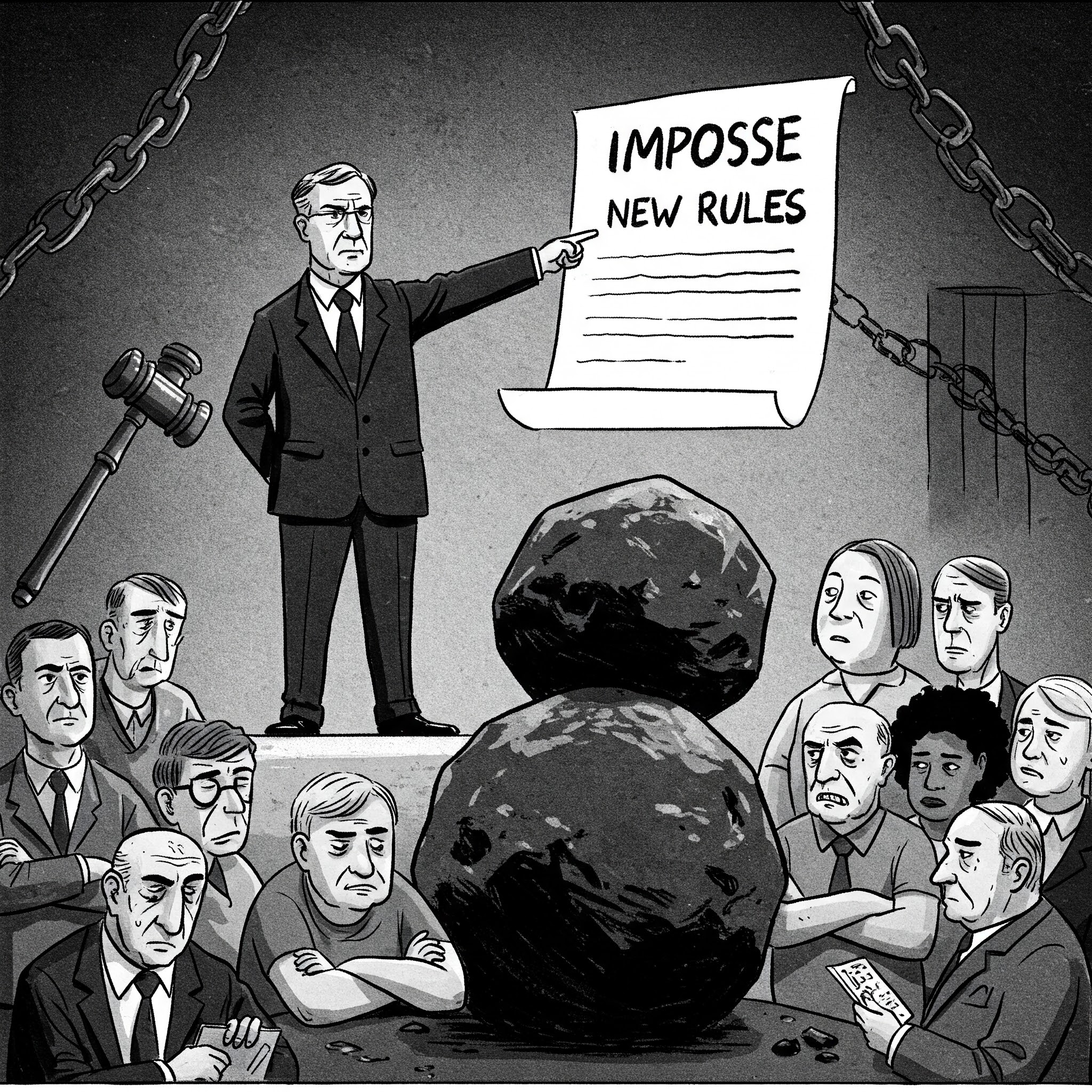Impose
Definition
Impose is a verb that means to force something to be accepted, done, or endured. It can also mean to take unfair advantage of someone or to establish something authoritatively.
Parts of Speech
- Verb
Pronunciation
American English
- IPA Pronunciation: /ɪmˈpoʊz/
- Respelling: im-POHZ
British English
- IPA Pronunciation: /ɪmˈpəʊz/
- Respelling: im-POHZ
Etymology
The word "impose" originates from the Latin "imponere," meaning "to place upon," derived from "in-" (on) and "ponere" (to place). It entered Middle English through Old French "imposer," retaining its meanings of enforcing or establishing something by authority.
Derivatives
- Imposition (noun)
- Imposer (noun)
- Imposing (adjective)
- Reimpose (verb)
- Imposedly (adverb, rare)
Synonyms
- Enforce
- Dictate
- Compel
Antonyms
- Lift
- Relieve
- Withdraw
Usage
The term "impose" is often used in legal, social, and interpersonal contexts. For example, "The government decided to impose a tax on imported goods," or "I don’t want to impose on your time."
Related Terms
- Mandate: An official order or commission.
- Compulsion: The action of forcing someone to do something.
- Burden: A duty or responsibility that is imposed.
Detailed Definitions
Verb
- To force something to be accepted or put in place: Refers to actions taken by authority or influence.
- Example: "The manager imposed new rules to improve efficiency."
- To take unfair advantage of someone: Indicates exploiting someone’s goodwill or hospitality.
- Example: "I hope I’m not imposing by asking for a favor."
- To establish something authoritatively or forcefully: Describes implementing something, often against resistance.
- Example: "The teacher imposed discipline in the classroom."
impose








